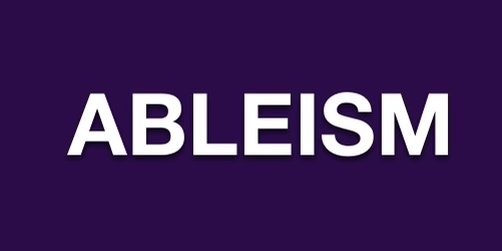Ableism is more than a definition. More insidious. More careless. More divisive.
_________
Ableism is being told directly:
You are not “disabled enough.”
I don’t see you “that way.”
People with disabilities are “deformed”, “defective”, “crippled”, “handicapped”.
“Even as a white woman with a disability, you have no place in the diversity conversation.”
“Disability doesn’t belong in the diversity conversation.”
These are just some of the things that have actually been said to me over the past six months; some were shared as recently as yesterday.
Each one is hurtful and shaming and silencing.
__________
My truth.
I am a person with a disability. I was born with a limb difference.
I see myself as a whole person; I own that my disability is part of me. It is my gift. It is my uniqueness. I want it to be seen and accepted. And, I still get to choose when I share my experience.
I have learned to accommodate in ways people can’t even imagine (or think of). I make it look effortless; it’s not always easy.
Disability is not a bad word. Bad words are those that try to limit or cause judgment.
My voice does belong in the diversity conversation, though, ironically enough, I have often felt excluded in the inclusion space.
Disability belongs in the diversity conversation. Those with disabilities, the visible and invisible, are the largest minority group. And yet, disability is often left out of the diversity conversation. It’s curious how narrowly we define diversity to include certain groups and leave out others. When we don’t include disability, we aren’t really talking about diversity.
My voice will continue to grow strong. I won’t be silenced.
_________
If you find yourself trying to decide if someone is “disabled enough” or if people with disabilities should be included in the diversity conversation, please stop and check yourself.
It’s hurtful. It’s repetitive shaming. It’s an attempt to silence. It’s ABLEISM.

